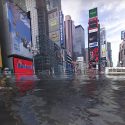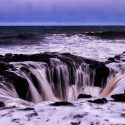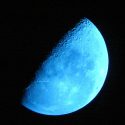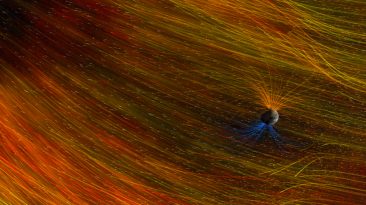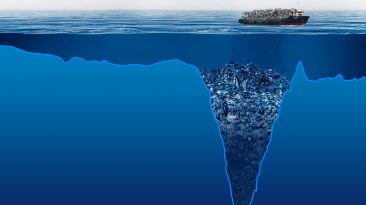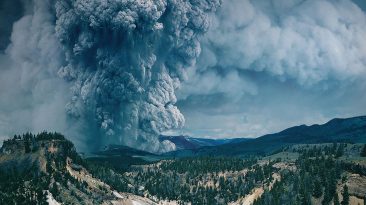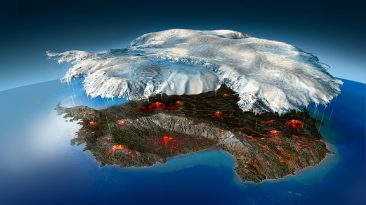What would happen if you dumped one of the world’s coldest liquids into the boiling, volatile mouth of a volcano? Would it freeze all of the lava inside?
Could it cause a massive explosion? Or maybe trigger a major natural disaster?
First thing’s first, if you’re planning to put your protective gear on, and dump a bucket of liquid nitrogen into a volcano, you’re going to be disappointed. Before you could even get close to the mouth of the volcano, the liquid nitrogen would evaporate due to the extreme heat. So you’d have to be a little more creative.
One way you could do it would be to fill a bunch of cannonballs with liquid nitrogen and launch them all into the volcano at once. That would definitely start a reaction inside the volcano, but you probably wouldn’t want to stick around to see it.
Now, before you go mixing these two crazy things together, let’s get to know them a little better. On the one hand, you have volcanoes, which are basically giant holes in the Earth’s crust. They’re full of boiling hot magma that can erupt outwards in the form of lava.
Actually, “boiling” is an understatement, because lava can reach temperatures of up to 1,200°C (2,192° F). On the other hand, you have liquid nitrogen, the smoky-looking substance that most people have heard of, but don’t know much about.
It can be as cold as -210°C (-346° F), and when it warms up and becomes a gas, it expands to 175 times its volume. If we want the liquid nitrogen to have a noticeable impact on the volcano, we’re going to need millions of liters of the stuff.
No big deal. Large masses of liquid nitrogen can be produced commercially, and all we’d need to transport it would be vented and insulated containers to prevent pressure buildup.
The really hard part would come when you’d try to put those millions of liters of liquid nitrogen into the volcano. That brings us back to the cannonballs.
The idea is that you’d fill each cannonball with liquid nitrogen and blast it into the mouth of the volcano. When the cannonball melts due to the extreme heat, it will release the liquid nitrogen into the magma.
Yes, we realize this is getting ridiculous, but hey, you knew what you were signing up for. Once a few cannonballs reached the magma, there would be a deadly brew of heated nitrogen gas floating its way up and out of the volcano, gobbling up all of the oxygen around it as it rises.
The liquid nitrogen might be able to freeze the surface lava quickly enough to form a crust, but that still wouldn’t be a very exciting effect for you watching from outside the volcano. Now, if you were somehow able to line up thousands of nitrogen cannons and continuously fire copius amounts of liquid nitrogen into the volcano, then things would start to get interesting.
With this amount of liquid nitrogen, more than just the surface lava would start to freeze, and immense pressure would build up underneath. Beneath the mouth of the volcano, there would be kilometers (miles) of lava slowly making its way to the surface. Its natural flow would be stopped by the frozen top layer.
All that pressure would need to go somewhere. The surface lava would, at this stage, look like a crumbling black sidewalk, slowly being elevated as lava pools under it.
Finally, explosions would begin. The volcano would erupt, sending jets of atmospheric pollutants skyward that could affect any living creature in the vicinity. Or the volcano might even explode, causing an earthquake.
Essentially, you’d be creating an induced eruption. A blocked vent is what causes volcanic eruptions, but generally, those blocks are natural. So perhaps you should just keep liquid nitrogen far away from volcanoes, and put it to better uses, like culinary experiments.
Subscribe to What-If on Youtube or follow the show on Facebook Watch.
Sources
- “Everything You Need To Know About Liquid Nitrogen”. Anne Marie Helmenstine, 2019. Thoughtco. Accessed September 25 2019.
- “How Cold Is Liquid Nitrogen Really?“. Anne Marie Helmenstine, 2019. Thoughtco. Accessed September 25 2019.
- “Liquid Nitrogen Cannon”. 2019. The Wonders Of Physics. Accessed September 25 2019.
- “What’s the Difference Between Magma and Lava?”. MICHAEL GRESHKO, 2019. nationalgeographic.com. Accessed September 25 2019.
- “What Is The Temperature Of Lava? – Universe Today”. 2009. Universe Today. Accessed September 25 2019.
- “Can we freeze a volcano with liquid nitrogen?”. 2019. Quora. Accessed September 25 2019.


